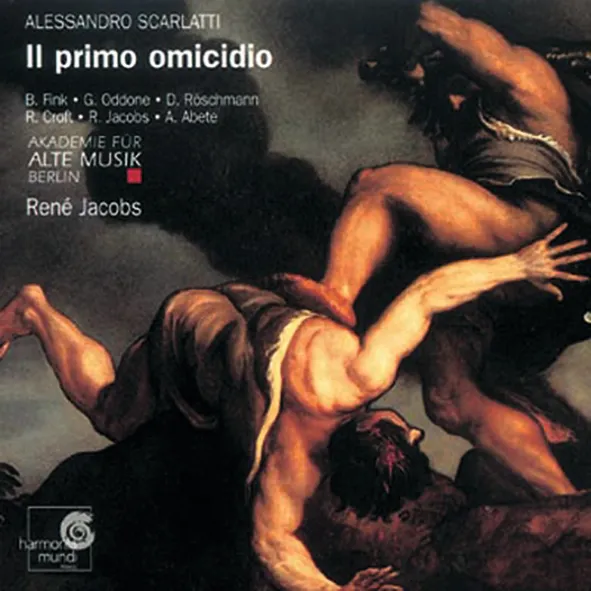
A Scarlatti Il Primo Omicidio Graciela Oddone, Dorothea Röschmann (sopranos), Bernarda Fink (alto), René Jacobs (countertenor), Richard Croft (tenor), Antonio Abete (bass); Akademie Fur Alte Musik Berlin/René Jacobs Harmonia Mundi HMM 931649-50 138:24 mins (2 discs)
Alessandro Scarlatti wrote this oratorio-like work for Venice in 1707. It presents the brutal story of Cain, ‘the first murderer’ (‘il primo omicidio’), and his brother Abel, as told in the book of Genesis. Like most oratorios, there is no provision for scenery or action, but neither is there a narrator or a commenting chorus, and this tends to dilute the dramatic effects.
The singers and instrumentalists are good, but occasionally have to compensate for some rather routine musical ideas. Bernarda Fink (Cain), for example, subtly injects an undercurrent of jealous anger into ‘Della terra i frutti’, but when musing on some unsettling disturbances in nature (‘Perché mormora il ruscello?’) she struggles against music that has little to do with reflective questioning. Similarly René Jacobs (the ‘Voice of God’), finds it hard to sustain gravitas in the face of the perky little accompaniment to ‘Vuò il castigo’. Gaciela Oddone (Abel) is clear and melifluous, and Dorothea Röschmann (Eve) is fully in command of vocal colour and chromatic tuning (see ‘Caro sposo’). The prize for vocal agility, however, goes to Richard Croft (Adam) who manages to squeeze some extra decoration into the hectic ‘Mi balena’ aria, and Antonio Abete makes a sonorous Lucifer, though he might have been more insidiously enticing in ‘Bramo insieme’. The orchestral playing is well crafted and does its best to breathe interest into the music, though sometimes the pace is slightly misjudged, as in the Adam and Eve duet ‘Aderite o figli’.
Anthony Pryer